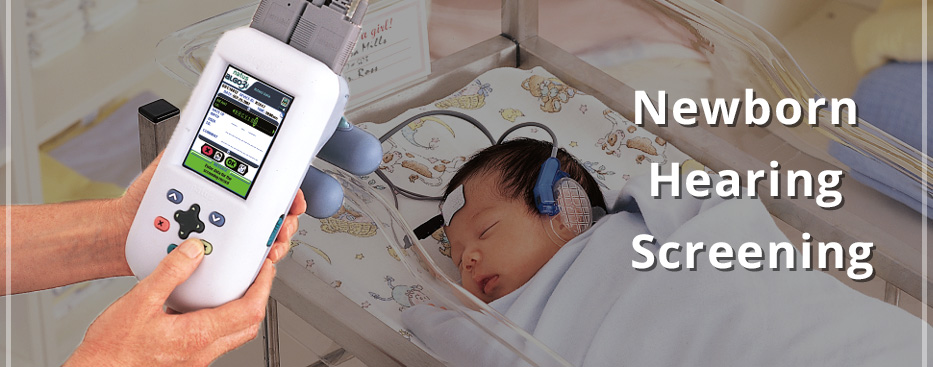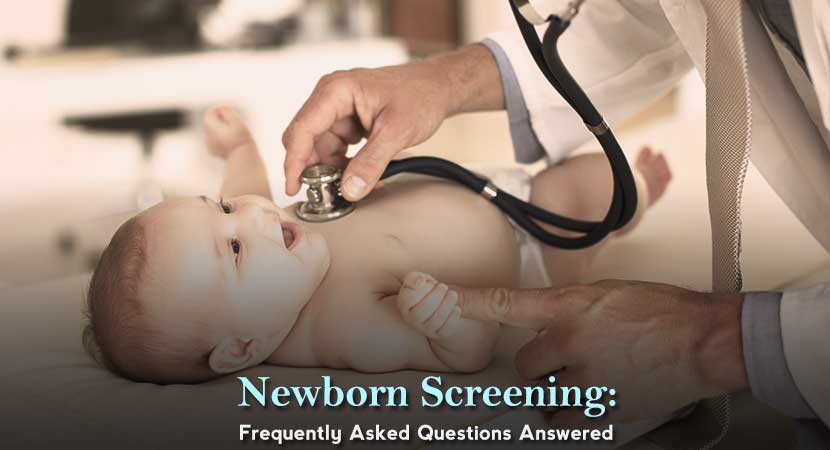Just like genes impact the colour of our hair or eyes, they affect some congenital disabilities and disorders. Using new born screening, conducted during the 1st and 2nd trimester, one can evaluate the risk of defects and genetic disorders in an unborn baby. A diagnostic centre in Chennai can determine, through the tests, if a baby is likely to inherit disorders like cystic fibrosis, sickle cell anaemia and Down Syndrome.
Along with the new born screening, other risk factors such as the age of the woman and family history are taken into consideration when calculating the probability of a baby being born with disorders.
Why is New Born Screening Important?
The chances of a baby being born healthy are good, but in some cases, even though the infant appears to be hale and hearty, there can be some issues. Screening tests in new-born allows doctors to identify risk, disorder or condition before it progresses to a higher stage. By identifying it at birth, healthcare practitioners are able to treat the conditions early making sure the baby usually develops and grows to be healthy.
When does a scan center in Chennai conduct the new born screening?
Since there are different types of new-born screening, the timing of them also differs. For instance, a blood test screen can be performed as early as a 24- or 48-hour old baby. The screening should not be done before 24 hours as the blood will not show certain conditions. Moving beyond the 48-hour threshold can prove to be a life-threatening delay.
A second new born screen may also be conducted two weeks after birth, as it provides the most precise results.
Also Read: Detecting Breast Cancer At An Early Stage
What are the new born screening procedures?
A new-born screening has three parts:
- Blood test
- Hearing test
- Pulse oximetry
The blood test, also called the heel stick, the heel of the new born, is pricked to collect a tiny blood sample. During this test, the parents can be near the infant. It has been proven that when mothers are allowed to comfort the baby during the blood test, the screening goes more smoothly.
The hearing test includes two screenings. The Otoacoustic Emissions Test checks if specific parts of the baby’s ear respond to sound and the Auditory Brain Stem Response which assesses the part of the nerve that carries sound from the ear to the brain and its response to sound.
 Both OAE and ABR evaluate hearing loss in infants. The tests don’t require any participation from the baby; therefore, they can be done while the infant is sleeping. Each test takes five to ten minutes to complete. Some doctors may only do one test on the infant and others may perform both.
Both OAE and ABR evaluate hearing loss in infants. The tests don’t require any participation from the baby; therefore, they can be done while the infant is sleeping. Each test takes five to ten minutes to complete. Some doctors may only do one test on the infant and others may perform both.
The pulse oximetry test measures the level of oxygen in the blood of the infant. The non-invasive test is required to check for crucial congenital heart diseases. CCHDs in infants produces low oxygen levels. Thus, the pulse ox screening helps find heart problems in new-borns.
To conduct the test, a pulse oximeter machine is utilised. It has a sensor placed on the skin of the baby to detect oxygen. The sensor is painless. The test is performed after the infant is one day old, but before he or she leaves the nursery.
These new born screening tests are performed on all infants, and the majority of them show average results. In rare cases, further testing may be required. But as mentioned before, catching any out of the way results means you can treat the condition, defect or disorder at an early stage. A point to note is that even without any family history, some babies may be born with medical conditions.
New Born Screening In Preterm Babies
Till now, the discussion has been based on the assumption that the baby was born without complications. What happens when the infant is preterm, has low birth weight or is sick? In such cases, the babies tend to require special treatments which affect new born screening test results. Therefore, the screening of these babies is slightly different.
One example of how new born screening differs is the blood test. In preterm infants, usually, blood is drawn more than once. It ensures that the results of the tests are accurate.
Bringing a new life to this earth is a massive commitment, and every parent wants to take all the steps to nurture the precious life. Thus, it is very much possible that parents of new-borns have more questions regarding screenings and genetic testing. If you have any additional queries about new born screening, Anderson Diagnostics is happy to answer them. As one of the most advanced scan centre in Chennai, we have the expertise and professionals to lay all your doubts and worries to rest!
